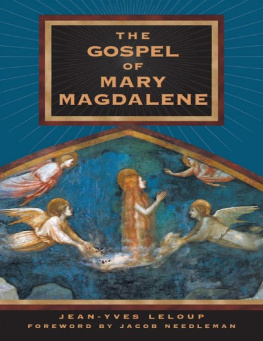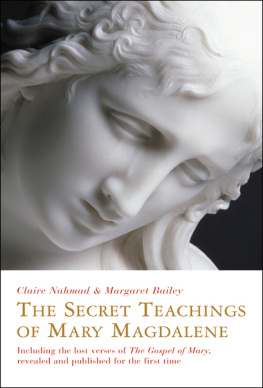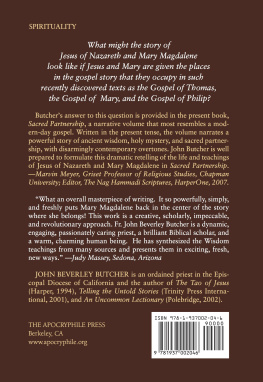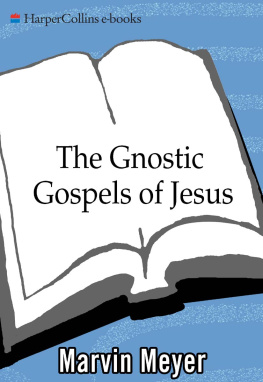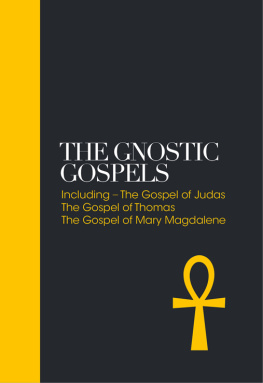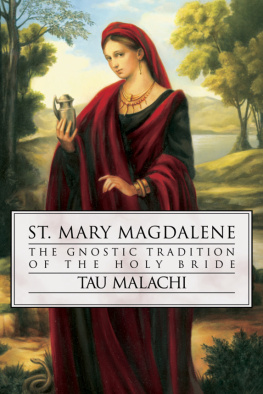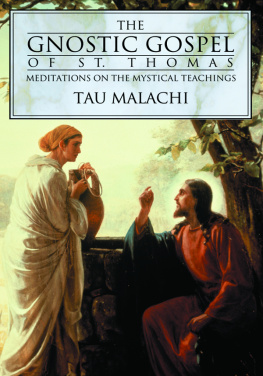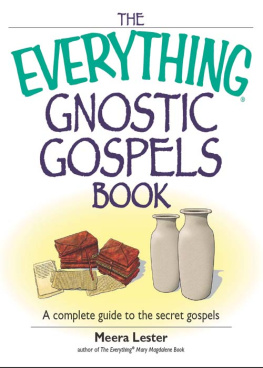|
| NT | New Testament |
| OT | Old Testament |
| 1 Cor | First Corinthians (NT) |
| 1 Jn | First Letter of John (NT) |
| 1 Sm | I Samuel (OT) |
| 1 Thes | First Thessalonians (NT) |
| 2 Jn | Second Letter of John (NT) |
| Acts | Acts of the Apostles (NT) |
| Col | Colossians (NT) |
| Dt | Deuteronomy (OT) |
| Eph | Ephesians (NT) |
| Ex | Exodus (OT) |
| Gal | Galatians (NT) |
| Is | Isaiah (OT) |
| Jn | The Gospel of John (NT) |
| Jgs | Judges (OT) |
| Lk | The Gospel of Luke (NT) |
| Mk | The Gospel of Mark (NT) |
| Mt | The Gospel of Matthew (NT) |
| Nm | Numbers (OT) |
| Prv | Proverbs (OT) |
| Phil | Philippians (NT) |
| Rv | Revelation (NT) |
| Rom | Romans (NT) |
| Wisdom | Wisdom of Solomon (OT Apocrypha) |
FOREWORD
The Gospel of Mary first came to light in Cairo in 1896, some fifty years before the revolutionary discovery in Nag Hammadi, Egypt, of what have come to be known as the Gnostic gospels, the most well-known of which is the Gospel of Thomas. Like them, the Gospel of Mary offers the modern man or woman a new perception of the immensity of Christianity and the figure of Jesus.
It is clear that in both root and essence the teaching of Jesus is a vision and a way that has been given to mankind from a source far above our known qualities of mind and sensibility. The luminosity and mystery of what he said and did two thousand years ago is a shock from above that changed the world and that continues to reverberate in the hopes of millions over the whole face of the earth. But the inner and outer conditions of modern life are such that it has become nearly impossible for many of us to hear the spiritual traditions of the world. The Gospel of Mary, taken with the inspired commentary by Jean-Yves Leloup, can help toward making the teaching of Jesus once again alivethat is, unknown, not in the negative sense, but in the great and fertile meaning of that word.
Every spiritual teaching sounds a call from above. But, as the present text announces and demonstrates, the central aim of the teaching of Jesus is to sensitize us to the above that also calls to us from within ourselves. The immensity of Christianity takes its interior meaning as a sign of an immensity within the self of every human being. As a path of inner awakening, as a path of deep self-knowledge (that is to say, gnosis), it invites and supports the inner struggle to attend, to hear and obey ones own Self, God in oneself. As Jean-Yves Leloup suggests, this is the intimate meaning of Anthropos: to be fully human oneself, the incarnation of God. This is an unknown teachingnot in the philosophical or theological sense, nor in the sense that it has never been said before, but in the sense that our ordinary thoughts and feelings can never really penetrate it. And it is unknown in the sense that we live our lives on the surface of ourselves, not knowing the one thing about our own being that it is necessary for us to know and that would bring us every good we could seriously wish for.
We are speaking of an unknown part of ourselves, which is at the same time the essential part of ourselves: the Teacher within, our genuine identity. The wayand it is surely the way that is offered by all the spiritual traditions of the worldis the practice, and the community supporting the practice, that opens a relationship between our everyday sense of self and the Self, or Spirit. This interior relationship between self and Spirit, we are told, is made possible through the inner cultivation of a specific quality of conscious attention and intelligence that in this tradition is referred to by the Greek term nous, or higher mind. It is the realm of intermediate attention and of mediating conscious forces in the cosmos that are mythologized as the angelic realms in the esoteric traditions of the worlds religions. It is in this miraculous yet lawful mediating contact between the higher and the lower within ourselves that the deeper, intimate experience of conscious love is givena conscious love for our starved and confused self that is at the same time love for our neighbor whose inner condition of metaphysical poverty is identical to our own. As Jean-Yves Leloup shows us, this is the love that is spoken of in the words of Jesus, Thou shalt love thy neighbor as thyself. It is a love that cannot be commanded, but that we are obliged to recognize as the defining attribute of our essential Self.
One of the most remarkable aspects of The Gospel of Mary Magdalene is that the more it shows us about the meaning of Christianity, the more the mystery deepens. This paradox is due, surely, to the fact that, like every truly spiritual communication, it speaks to us both on the surface and at deep unconscious levels at the same time. While at the intellectual level it points to the resolution of apparent contradictions that sometimes drive us away from belief in the objective existence of the Good, it at the same time opens the heart to a silent recognition of homecomingthe joy of what we knew without words all along, but had all but given up hope of finding. No mystery is greater or more welcome than thisthat above our minds, in the depths of silence, we may be given to know ourselves as Being and as created to serve the good both for God and our neighbor.
Jacob Needleman,
Department of Philosophy,
San Francisco State University,
and author of Lost Christianity and The American Soul
PREFACE: WHO IS MARY MAGDALENE?
RESEARCH FOR OUR play, My Magdaleneabout a young woman who finds a challenging and strengthening relationship to Mary Magdalene through her dream lifeled us to France, where the Magdalene tradition lives strongly. Halfway up the hill to the cathedral at Vezelay, a nexus of Magdalene devotion, in a little stone bookstore opening onto the steep stone street, Joseph Rowe handed usThe Gospel of Mary Magdalene in its original French. Completely enchanted by it, we arranged for Mr. Rowe, a very talented translator, dramatist, and musician, to translate it into English.
It became our charge to provide the foreword for this new translation. The fruits of our research, we hoped, would place Mary in some context, thereby, perhaps, making the reading of her gospel more potent.
Next page

